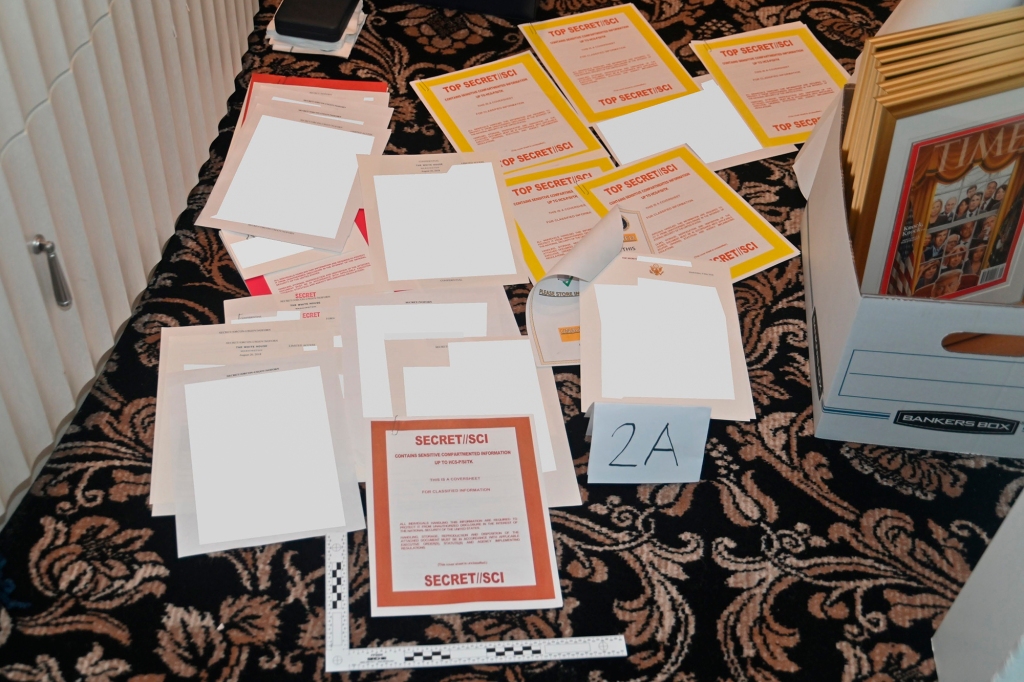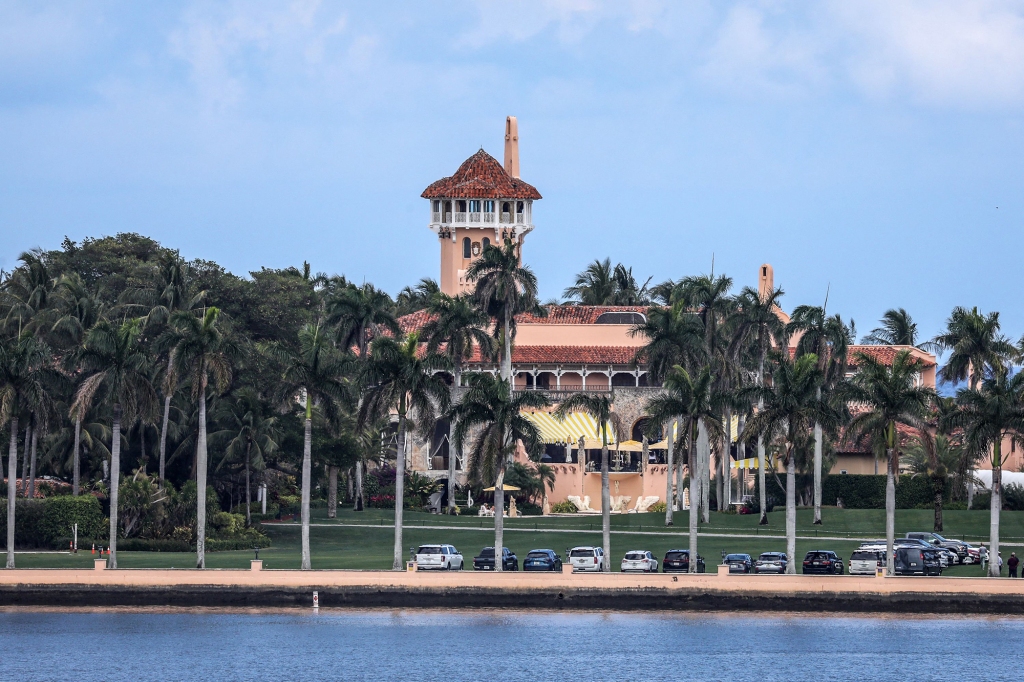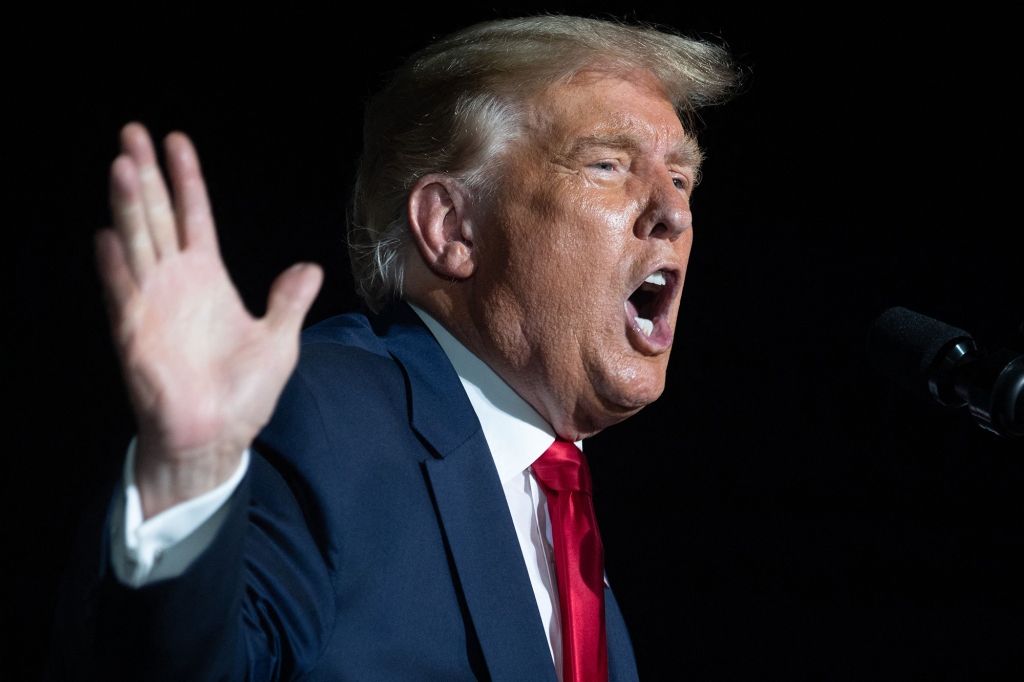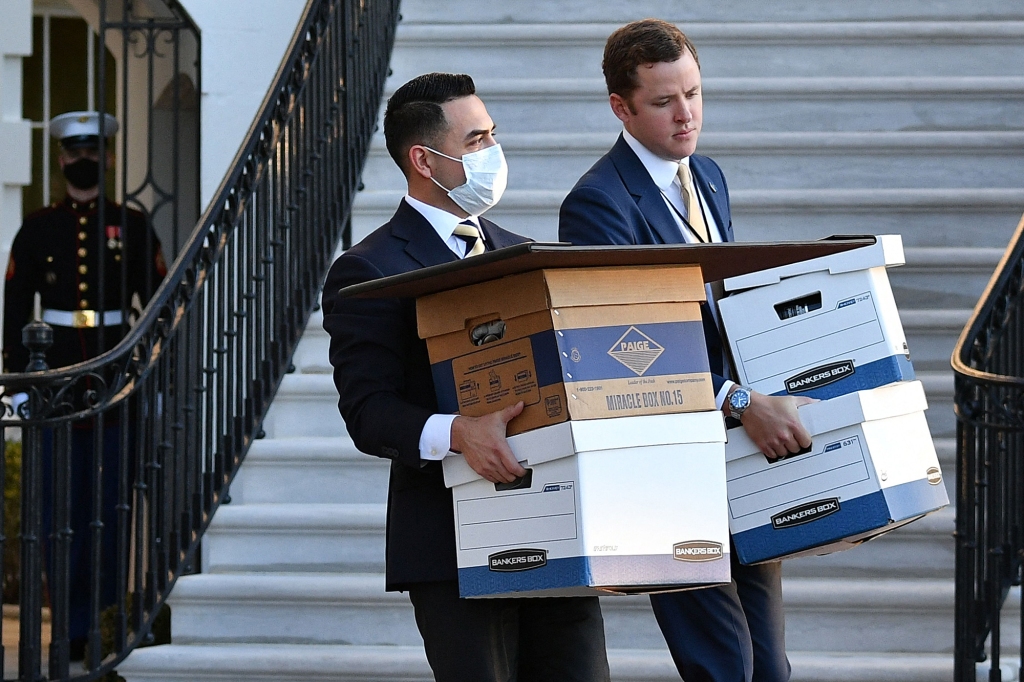The charges and how many years Trump faces in federal Mar-a-Lago indictment
The federal indictment lodged against former president Donald Trump includes seven charges that carry a maximum 75-year prison sentence if convicted on all counts.
The 76-year-old former commander in chief was indicted by a federal grand jury Thursday on criminal charges relating to his alleged mishandling of classified White House documents that were recovered at his Mar-a-Lago estate in Florida and allegations he tried to obstruct the government’s attempts to retrieve them.
The charges against Trump include: willfully retaining the national defense documents, conspiring to obstruct justice, withholding the documents, corruptly concealing the records, concealing a document in a federal investigation, scheming to conceal and making false statements, sources told ABC News.
All seven charges “break out from an Espionage Act charge,” his lawyer Jim Trusty confirmed to CNN.
“It does have some language in it that suggests what the seven charges would be. Not 100% clear that all of those are separate charges, but they basically break out from an Espionage Act charge,” Trusty said.
Each charge could carry a prison sentence.
Retaining classified documents
Trump is accused of hoarding hundreds of classified materials inside his Palm Beach resort that were recovered in two separate FBI raids last year.
He claimed he declassified everything that came from the White House, adding that a president has the authority to declassify material “even by thinking about it.”
A section of the Espionage Act prohibits any individual — including the president — from “willfully retain[ing]” national defense information and “fail[ing] to deliver it to the officer or employee of the United States entitled to receive it.”

The statute carries a maximum sentence of 10 years and/or a fine.
Conspiring to obstruct justice
The ex-commander-in-chief is accused of telling others to mislead government officials while they were working on gathering the classified documents in his possession, a crime that would constitute an obstruction of justice charge.
Federal law prohibits anyone from making “threats or force” that would “influence, intimidate, or impede” any US officials from conducting their work.

The statute carries a maximum sentence of 10 years and/or a fine.
Withholding a document or record
Investigators allege that Trump purposely leafed through some of the boxes of top-secret government documents in an apparent effort to retain some of the material.
Similar to the Espionage Act charge, the unauthorized removal and retention of classified documents or material charge prohibits an individual from “knowingly removing such documents or materials without authority and with the intent to retain such documents or materials at an unauthorized location.”
The statute carries a maximum sentence of 5 years and/or a fine.

Corruptly concealing a document or record
The corruptly concealing a document charge includes language for both threatening others to mislead a federal investigation and illegally retaining classified documents, both of which Trump is accused of doing.
The charge targets “whoever corruptly alters, destroys, mutilates, or conceals a record, document, or other object, or attempts to do so, with the intent to impair the object’s integrity or availability for use in an official proceeding; or otherwise obstructs, influences, or impedes any official proceeding, or attempts to do so.”

The charge carries one of the heftiest sentences — Trump could face a 20-year punishment and/or a fine.
Concealing a document in a federal investigation
Trump could face another two decades if convicted of purposefully hiding the classified documents while federal investigators were searching for them inside his private residences last year.
“Whoever tampers with evidence, such as by altering, destroying, or concealing a record, document or other tangible object with an intent to obstruct or impede a court proceeding can be punished,” according to the statute.
The statute carries a maximum sentence of 20 years and/or a fine.
Scheme to conceal
Trump is accused of knowingly hiding the classified documents while and immediately after serving within the “executive, legislative, or judicial branch of the Government of the United States,” according to the statute.
The statute carries a maximum sentence of 5 years and/or a fine.
If found to have been involved in domestic terrorism, the charge could land Trump an 8-year sentence.
False statements and representations
Finally, for allegedly lying about keeping top-secret government papers inside his private home, Trump could face charges for making false statements and representations.
The statute carries a maximum sentence of 5 years and/or a fine.
If convicted on all seven charges, the ex-president could face a 75-year prison sentence.
Read the full article Here


